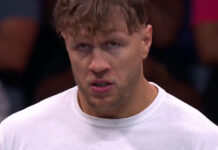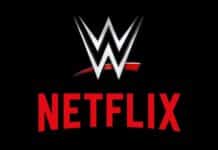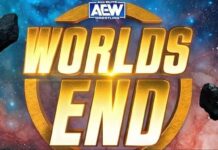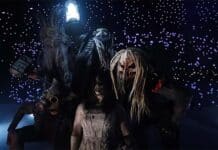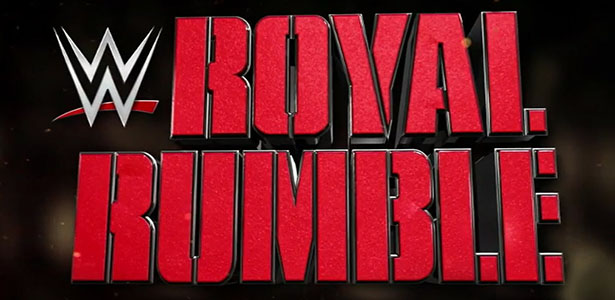
When I started this concept of a series of more personal articles and went with the title “VHS Memoirs” as a reference because many of the events took place when the VCR was the standard media format. For that original column, I reviewed my experience of watching the Royal Rumble 1994, when five-year-old Jim tried to tell anyone that would listen that Lex Luger’s boots hit the floor first, making Bret Hart the winner. Young Jim went as far as to re-enact the moment with the classic Hasbro figures and blue wrestling ring that were placed in front of the television to prove the point. As we know, both Bret and Lex would be declared co-winners. Eventually, Bret Hart beat Yokozuna at Wrestlemania 10 and during a family gathering for the event, little Jim rejoiced that Bret was finally the champion.
Yesterday marked 21 years since the 2000 edition of the Rumble, and during this broadcast from Madison Square Garden, I was in elementary school, but was allowed to stay awake later than usual to watch the show with my older cousins, while my dad made his trademark rigatoni recipe. I always find it interesting to re-watch these events for this review because its a neat comparison to when I first watched it live on pay-per-view. It should be noted that I didn’t have internet access until 2001 so despite the well-known rumors of Tazz’s WWF arrival, I wasn’t aware of the possibility that he would show up at the Rumble. Instead, all I knew at the time was that he finished with ECW and was later puzzled as to why he was still in the horrendous Hardcore Revolution video game and had an ECW action figure.
The show opened with his famous debut at MSG and while Tazz’s career didn’t get off the ground in the WWF for a combination of reasons, the surprise arrive at the Rumble was a legitimate moment in pro wrestling history. The match itself was rather simplistic, but used the buzz of the surprise well to showcase Tazz for his first impression on a new audience. Considering that he was the first wrestler to beat Angle after a winning streak that was promoted on TV, I think management saw potential in Tazz and didn’t intend to water him down after he signed a contract. Instead, Tazz’s style just didn’t translate to the WWF’s playbook, which isn’t necessarily his fault because the office knew what they were getting when they offered the former ECW champion a deal. It was mentioned on a few podcast in recent years that some of management weren’t thrilled with his suplexes because they looked dangerous, but perhaps it was more alarming because most of the roster at the time didn’t use that style. For Angle, the defeat actually made sense because if an undefeated streak is too lengthy then it can create a letdown when someone finally loses a match since there’s not many places to go after it. Angle went on to win the WWF title before the end of the year, and it was the start of a remarkable run of stellar matches in the next few years during his original run in the company.
The Hardys vs. The Dudleys in a tables match was wild and included some risky bumps, including Bubba’s plunge off the taxi that was a part of the set through a table. All things considered, this is a great match that sometimes gets forgotten about because of the absolutely insane TLC matches that happened in during the tag division within the next few years. A side note, some of the chair shots that happened in this bout were cringe worthy in retrospect, but hopefully, it will be a cautionary tale for some of the risks of the modern era. At the same time, the series of tag bouts throughout 2000 and the following year made new stars, which was key for the company, considering that most of 1999 coasted on the success of 1998, but 2000 introduced a series of new stars to the WWF audience.
The New Age Outlaws defeated The APA in a match that went about two minutes and this seems to be one of the unavoidable scenarios of some short under card contests because of the Royal Rumble match was scheduled for nearly an hour of the broadcast. Another shorter bout on the card was the triple threat IC title match. In hindsight, it’s rather odd to see how this match was booked because while Chyna was a star, most of that wasn’t based on her in-ring skills. Chris Jericho discussed this storyline in his books and wasn’t thrilled with the results either. If anything, it shows the ups and downs of the Attitude era, as Jericho went from an incredible debut for a promo with The Rock nearly six earlier to a rather forgettable mid-card match at the Rumble.
Speaking of star-making performances, I think it’s fair to say that regardless of his previous main event appearances, Triple H was made a legitimate main event star after this great match against Cactus Jack. The match was a textbook lesson in wrestling psychology and it built well to the finish of the match. The drama and the action told a story that emphasized Mick Foley as the baby face that the crowd rallied behind and Triple H as the vicious heel. The pedigree on the thumbtacks was a crazy spot and a memorable finish to the match.
The actual Royal Rumble match was more or less the standard battle royal so there’s not too much to discuss about it, aside from the brutal bump Taka took when he was eliminated. It’s ironic that The Rock won the match, but in true Attitude Era booking, it was a moot decision because the main event of Wrestlemania 2000 was eventually booked as a four-way match so other competitors that didn’t win the Rumble had a title shot.
Overall, it was a really solid pay-per-view, specially because of the Tazz debut, the tables match, and the WWF title match. Another interesting aspect of the review of these events with the retrospective of the era is the context of these shows and how the dynamic of the industry shifted. Keep in mind, there was competition for the pay-per-view dollar, as aside from The Rumble, WCW presented Sold Out, and ECW promoted Guilty as Charged the same month. WCW booked a mess of a card with a dozen matches, mostly short bouts with subpar quality. In some ways, it summed up the rest of the year in the organization, as WCW lost $60 million dollars in 2000 with Vince Russo as the head writer for the Turner organization. The Sold Out main event had Benoit beat Sid Vicious for the WCW title before The Radicalz made the jump to the WWF the following week. ECW booked a fun show for Guilty as Charged, an event that I wrote about for a previous edition of The VHS memoirs, but the main event of Mike Awesome vs. Spike was another example of a contest that summed up the state of the company. With many of the organization’s top stars leaving for bigger money in the WWF or WCW, the promotional tactics of ECW shifted from violence using compelling characters to an almost one-dimensional presentation of a stunt show. The main event of Awesome vs. Spike was built around table bumps, not any type of psychology. Again, in retrospect, it’s interesting to see the direction each company took during the year.
What do you think? Comment below with your thoughts, opinions, feedback and anything else that was raised.
Until next week
-Jim LaMotta
E mail [email protected] | You can follow me on Twitter @jimlamotta

